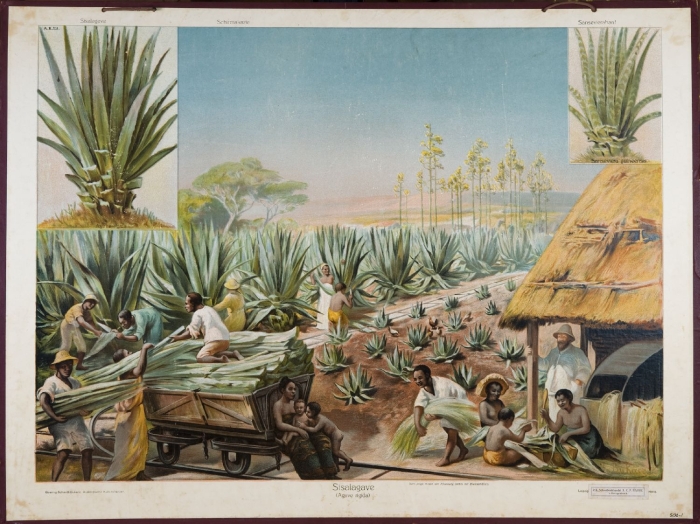23 July 2014
Slaveowners and the enslaved are both featured in a massive project undertaken by the University College London. Legacies of British Slave-ownership, according to its creators, "is the umbrella for two projects based at UCL tracing the impact of slave-ownership on the formation of modern Britain: the ESRC-funded Legacies of British Slave-ownership project, now complete, and the ESRC and AHRC-funded Structure and significance of British Caribbean slave-ownership 1763-1833, running from 2013-2015."
The website's search engine leads to government documents, commercial registers, association registers, portraits, biographies and much, much more on colonial slavery throughout the British empire. Of tremendous value, not just for searching but for cultural and historical perspective, is its blog that presents case studies from around the globe. Recent contributions include
- "Researching Female Slave Owners at the Huntington Library" (San Marino, California)
- "Three Men in a Canoe: Researching Caribbean Family History"
- "Margaret McPherson Grant and the Legacies of Slave-derived Wealth"
- "The Impact of 'Twelve Years a Slave': Using Family History to Address the Legacies of Slavery"
Enjoy!
IMAGE SOURCE: Banana Planting by Caribbean Slaves; public domain image [CC-BY-SA-3.0] Wikimedia Commons (http://upload.wikimedia.org/wikipedia/commons/e/ed/COLLECTIE_TROPENMUSEUM_Een_sisalagave-_en_een_bananenplantage_TMnr_5130-1.jpg : downloaded 28 June 2014), contributed by Tropenmuseum of the Royal Tropical Institute (KIT).
Gentle correction
It's "University College, London" or "UCL" not "The University College, London". There are lots of colleges in London University. From http://www.lon.ac.uk/: "The University of London consists of 18 self governing Colleges and 10 other smaller specialist research institutes." (One of which I went to, and it wasn't UCL :) )
And a gentle response ...
ColeValleyGirl,
You are certainly right that "The" is not part of the name of "University College London." That is why EE's text did not capitalize the word the as your response suggests.
The issue here is an editorial or grammatical one. We live in a country whose official name is United States of America, but when we use the name in a sentence, we still preface it with the article the (lower-cased, of course). California's major university system is University of California, but when its name appears in the middle of a sentence, it is still referenced as the University of California. The two major bodies of water that bracket the U.S. are officially named Atlantic Ocean and Pacific Ocean, but we still refer to them as the Atlantic and the Pacific.
Language can be such fun to parse.
Two peoples divided by a common tongue
Here in the UK, we refer to "Oxford University" or "the University of Oxford) but never "the Oxford University", even in the middle of a sentence. Likewise, "University College London" (or UCL) but never "the University College London". There are a few London University colleges which include the definite article in their proper name but they are few (e.g. The Royal Veterinary College) -- so using the definite article with the proper name of UCL looks as odd to English eyes as using it with the proper name of a building or person... "I went to the Westminster Abbey where I met the Helen Wright".
As you say, language is fun.